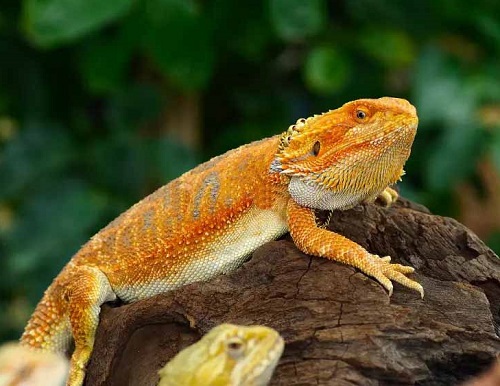Wondering about the Biggest Bearded Dragons you can keep as pets? Well, the ones in this list will surprise you for sure!
Prepare to have your scales tipped! In the fascinating world of reptile enthusiasts, the quest to discover the Biggest Bearded Dragons has taken some astonishing turns. From dragons exceeding two feet in length to those tipping the scales at impressive weights, these giants of the bearded dragon realm redefine what it means to be ‘above average’ in the lizard world!
Can Bearded Dragons Eat Purple Cabbage? Learn here
Biggest Bearded Dragons in the World
1. Goliath Bearded Dragon
Length: 26-32 inches
One of the Biggest Bearded Dragons, it is a selectively bred variant, known for its larger size compared to standard ones. It often sports a robust, muscular body and a broad head.
Despite its size, it shares the common characteristics like spiky scales and a “beard,” which can puff out when the dragon feels threatened.
- Habitat: Provide a spacious enclosure with a basking spot and a more relaxed area.
- Diet: Offer a variety of insects and leafy greens, ensuring a calcium supplement.
- Hydration: Mist the enclosure and provide a shallow water dish for drinking.
- Handling: Handle them gently to encourage socialization, but be cautious due to their size.
2. Thor Bearded Dragon
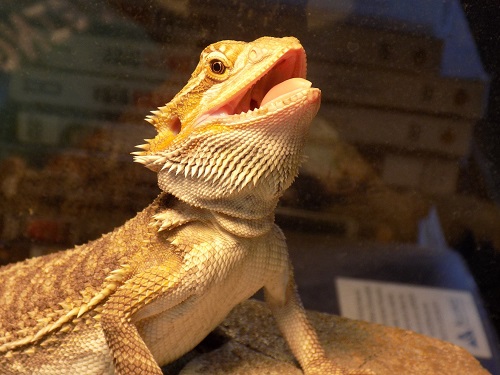
Length: 20-26 inches
These are not a distinct species but rather a nickname for particularly large or robust individuals, often from the Central Bearded Dragon species (Pogona vitticeps).
These dragons are usually characterized by vibrant coloration, strong limbs, and an imposing appearance, much like their mythical namesake.
- Habitat: Create a comfortable enclosure with proper temperature and lighting gradients.
- Diet: Offer a balanced diet with a variety of insects and vegetables.
- UVB Lighting: Ensure they can access adequate UVB lighting for calcium absorption.
- Interaction: Handle them gently and regularly to build trust and reduce stress.
3. Mitchell’s Bearded Dragon
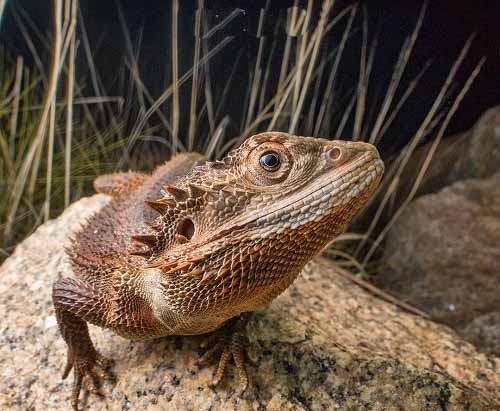
Length: 18-22 inches
Next on the list of Biggest Bearded Dragons, Mitchell (Pogona mitchelli) tends to be a bit smaller and features a more slender body and a head that’s less broad.
Their coloration is often earth-toned, blending well with their native Australian desert habitat.
- Habitat: Create a semi-arid habitat with a basking spot and hiding places.
- Diet: Offer a varied diet of insects, greens, and fruits.
- Behavior: Mimic their natural behaviors by providing climbing opportunities and basking spots.
- Hydration: Provide a water dish and occasionally mist the enclosure
Find Out here: Can Bearded Dragons Eat Broccoli?
4. Coastal Bearded Dragon
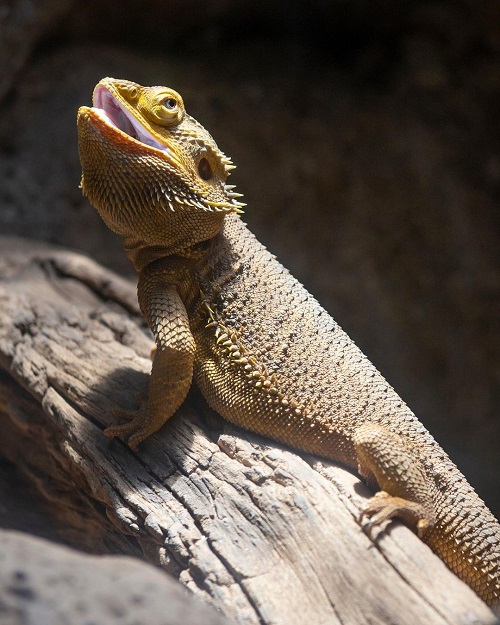
Length: 18-25 inches
This one (Pogona barbata) is native to the eastern coasts of Australia. They typically have a darker coloration, ranging from dark brown to grayish-black, to blend into their coastal habitat.
They have a flatter body compared to other species and display the characteristic spiky “beard.”
- Habitat: Create a well-ventilated enclosure with temperature gradients.
- Diet: Offer a diet of insects and leafy greens.
- Interaction: Handle them gently to ensure they remain comfortable with human contact.
- Safety: Be cautious about their environment to prevent accidental escapes.
5. Central Bearded Dragon
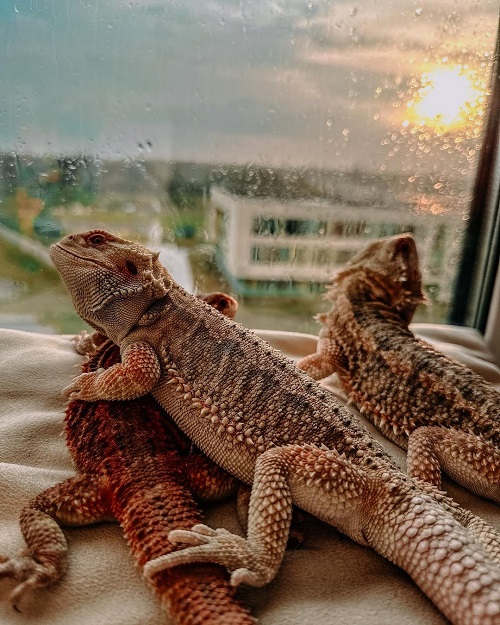
Length: 20-24 inches
Pogona vitticeps is perhaps the most popular species in captivity. These dragons are known for their wide range of colors, including tan, orange, and even red.
They feature a broad head, robust body, and the characteristic beard. They are the most commonly studied and bred, leading to many morphs and color variations.
- Habitat: Provide a spacious enclosure with basking and hiding spots.
- Diet: Offer a varied diet of insects, vegetables, and occasional fruit.
- UVB Lighting: Ensure they have access to proper UVB lighting for calcium metabolism.
- Socialization: Handle them gently and regularly to build trust.
6. German Giant Dragon
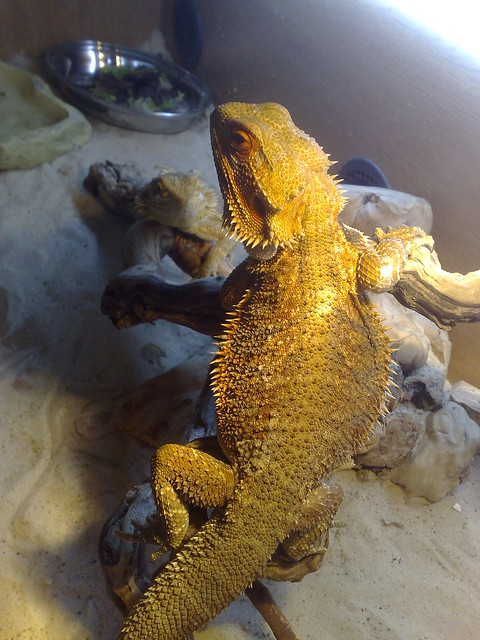
Length: 22-30 inches
Last on the list of Biggest Bearded Dragons, this one is a selectively bred variant, engineered for its size. They are notably larger than their standard counterparts, featuring a bulky body and a broad head.
Despite their size, they share the same spiky scales and beard that are characteristic of these animals in general.
- Habitat: Set up a large, well-ventilated enclosure with proper lighting and heating.
- Diet: Offer a diet rich in insects and nutrient-dense vegetables.
- Hydration: Ensure access to clean water and maintain humidity levels.
- Monitoring: Regularly check for signs of stress or health issues due to their size.

